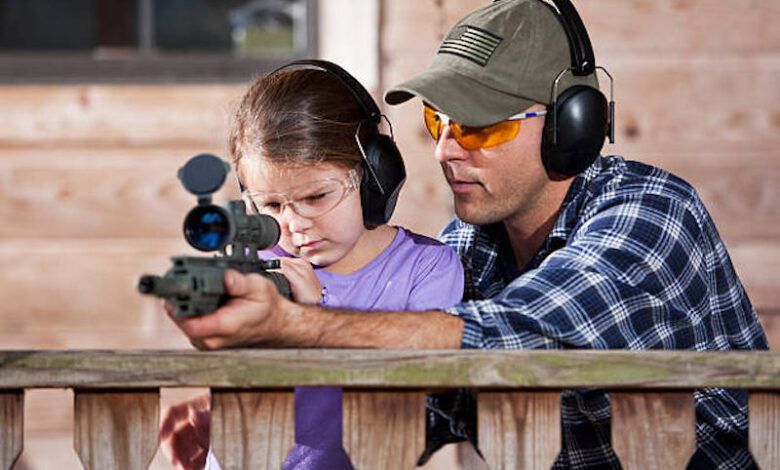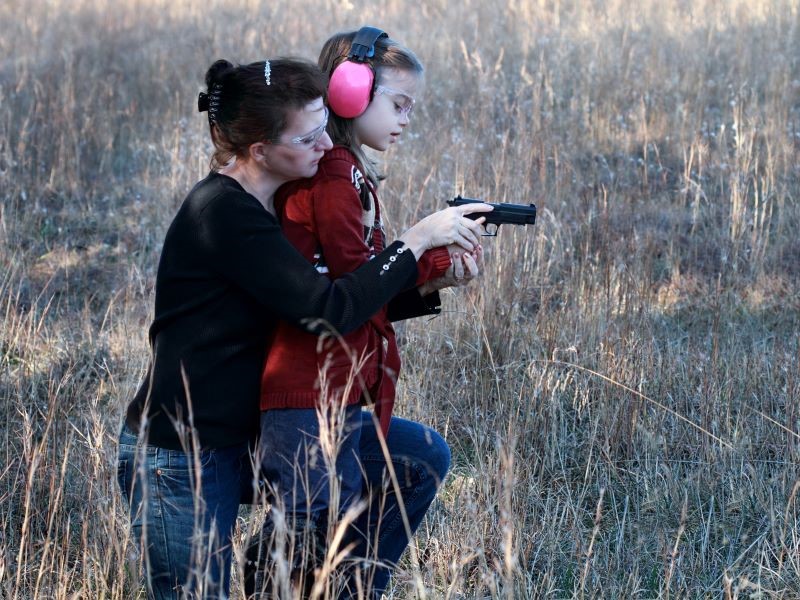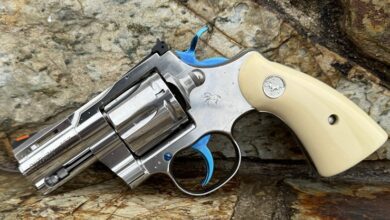The Mentor: A Positive Impact on the Shooting Community

Once upon a time, I was a high school freshman. Our family moved from the suburban terrain of Northern California to the rural landscape of the Missouri Ozark Mountains. For a young teenager obsessed with the outdoors and firearms, I had little perspective on how significant of an impact this move would have on the course of my life. From that move, I met a friendly neighbor named Walt, who kindled my budding interest in firearms. Walt acted as a mentor during those formative years, where I first learned reloading, marksmanship, and all things related to firearms. Since then, I’ve been blessed to have some amazing mentors in the firearm community.
Mentors are an important part of any profession, hobby, or interest. They breathe passion and expertise into their subject through shared wisdom and expertise with others. Mentors serve a vital role within the shooting community by ensuring that passion and knowledge endure through later generations. While my discussions normally converge on specific skills, techniques, or products, it’s worthwhile to discuss the mentor’s role and their impact on our shooting passions and interests.
A Mentor is Passionate
One of the most memorable events of my teenage years culminated with Walt allowing me to view his prized gun collection. Previously, he’d show me the occasional latest addition, but I hadn’t seen it in its entirety. I stood in awe of his knowledge as he showed me firearm after firearm while explaining the history, design, and impact each had on American history and firearm development. His passion and excitement for these firearms were glaringly evident — and contagious.
Whether you barely graduated high school or hold a PhD, I’m willing to bet you encountered at least one teacher whose passion invariably transferred to you. While not all topics are engaging, the teacher has a pivotal role in determining how their student(s) receive shared knowledge. The best teachers are invested in their subject matter and impose that interest and childlike curiosity upon their mentees. So, whether the topic is gunsmithing, reloading, or training, a true mentor translates their passion to others without hesitation.
Lifelong Learning
Mentors appear as formal and informal leaders throughout the firearm industry. While some may carry significant titles and accolades, the greatest educators are open to discussion and change within their area of expertise. Mentors are expected to have the answers, but they don’t always have all the answers. From my experience, the best teachers can set their egos aside to admit, “I don’t know,” while seeking to find the answer.
Over the years, industry standards and norms have been challenged through improved collective knowledge and technological developments. For example, prevailing beliefs that once argued in favor of a particular handgun caliber have changed drastically over the last 25 years. Defensive tactics and training methods have progressed significantly as well. While many methods have withstood the test of time and experience, good mentors have the humility to learn from a student. Most of all, they know the power of perspective and how challenging longstanding doctrine can sometimes lead to improved tactics and equipment.
“No Greater High”
Before ever strapping on a vest or wearing a badge, I attended Massad Ayoob’s MAG-40 course, formerly known as LFI-1. This 40+ hour course delves into the weeds with the legal, ethical, and moral implications of deadly force encounters. During one break, we stood outside the classroom chatting with Mas. As someone interested in teaching, I asked Mas about his greatest accomplishment as an instructor. He barely hesitated with his reply. For him, the greatest accomplishments came from students reaching out to him to say his training and teaching kept them alive during a deadly force encounter. His response culminated with words that emphasized the impact those contacts had on him, “There’s no greater high.”
Mentors do more than just disseminate information. Their teachings and lessons have a purpose. Often, they teach with little to no expectation of a return on that investment except perhaps a paycheck or the occasional “thank you.” However, sometimes, the benefits of mentoring a new shooter or inductee into shooting sports appear when the student masters a drill or attributes the mentor’s teachings to a positive outcome. Regardless, a true mentor understands recognition comes in many forms. Most of all, they understand the purpose driving their efforts and what the return on their investment could be.
Stepping into the Role of the Mentor
For anyone passionate about shooting sports, firearms, and training, there comes a time when the knowledge retained exceeds the knowledge sought. By no means should the previous statement be interpreted to mean mentors don’t seek to further their education. They should, and good ones do. Rather, there comes a time when mentors evolve into a position to share more information than they obtain.
Recently, I discussed this topic with a coworker about newer law enforcement officers. As a young deputy, I relied heavily on veterans and superiors to guide me toward the right answers and best solutions when presented with a problem. As my experience, education, and knowledge grew, it seemed like the switch suddenly flipped one day, and I was the one fielding those questions from younger officers.
For many of the questions and problems I encountered, I related an experience or resource that guided that officer to the right answer. Occasionally, some of the questions were more obscure or unique and required further research. As mentors field these inquiries, their responsibility grows. The mentor no longer has to worry just about their decisions and actions but others as well. They have the power to influence an individual’s behavior, judgment, and decision-making process. This responsibility requires some level of self-reflection in how the mentor presents, obtains, and verifies the information they’re disseminating. The old adage of “trust but verify” becomes exceptionally important.

The Ultimate Responsibility, but the Greatest Role
Once someone becomes a mentor, their role within the firearms and shooting world changes drastically. The information they share directly affects others’ decision-making, potentially having far-reaching consequences. While the consequences could be as simple as bad shooting technique or poor equipment selection, they can extend to more severe implications, such as unsafe firearm practices and tactics.
The mentor’s role bears a great deal of responsibility and can’t be taken lightly. With the proliferation of social media and internet experts, there’s plenty of shared misinformation available. While I advocate that anyone engaged in the shooting sports or firearms industry should be cautiously critical of how, who, and where they obtain their information, the mentor bears an even greater responsibility. Their shared knowledge extends to others and has a great influence on the direction and choices made by others.
Once someone becomes a gun owner, they become an ambassador to the shooting world. Mentors have an inherent responsibility to ensure those ambassadors, no matter their experience, positively represent this great pastime. While this task may seem somewhat intimidating, there’s “no greater high” than to see one of those ambassadors grow into a mentor just as you did. While the “burden” may be great, the reward of sharing our passion with others — and seeing the benefits — is even better.
The post The Mentor: A Positive Impact on the Shooting Community appeared first on The Mag Life.
Read the full article here






